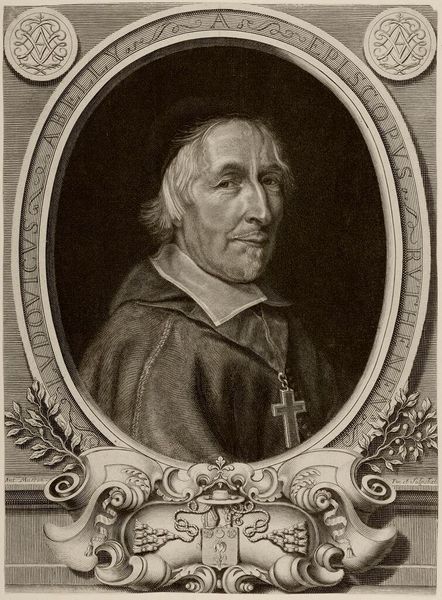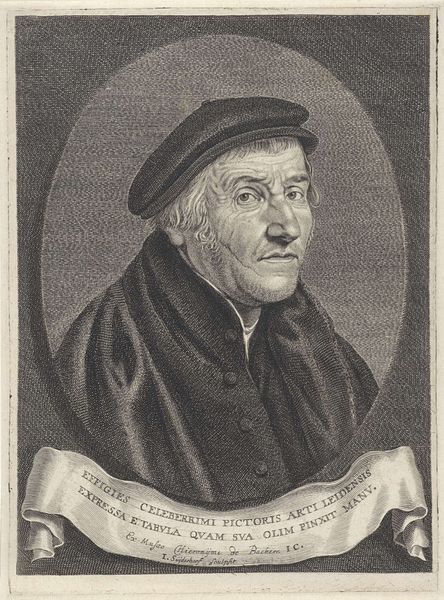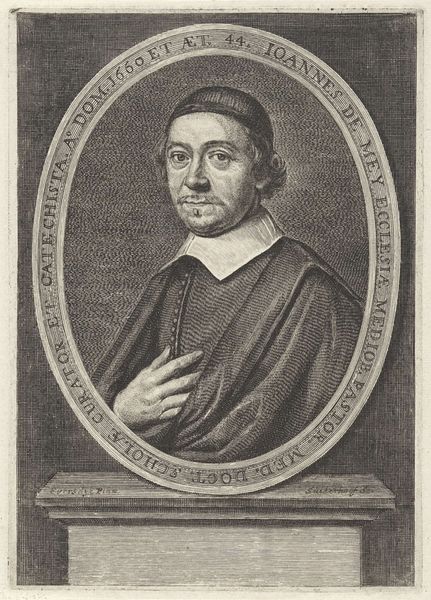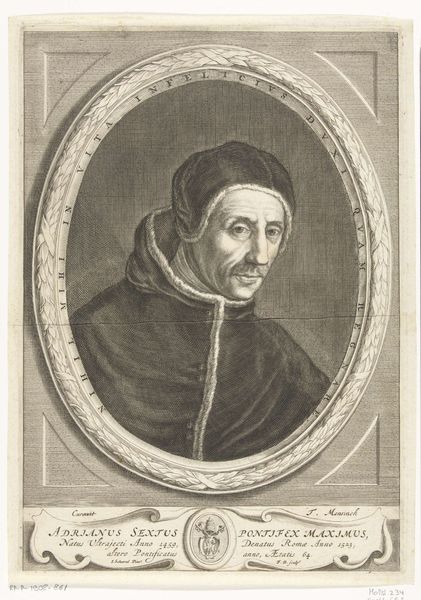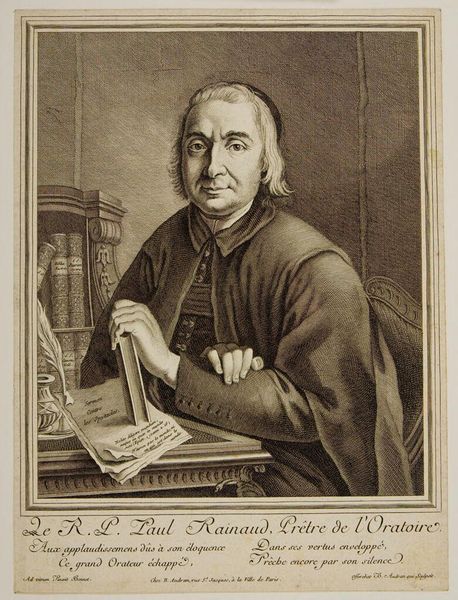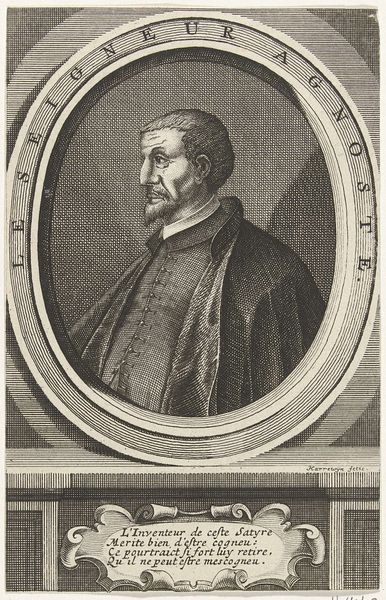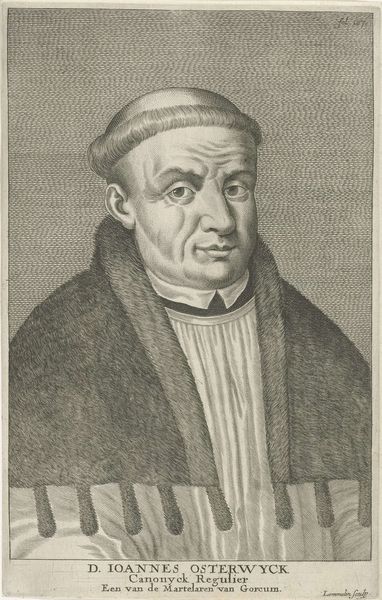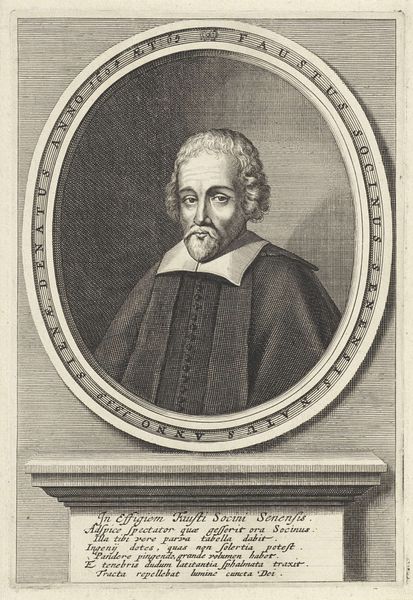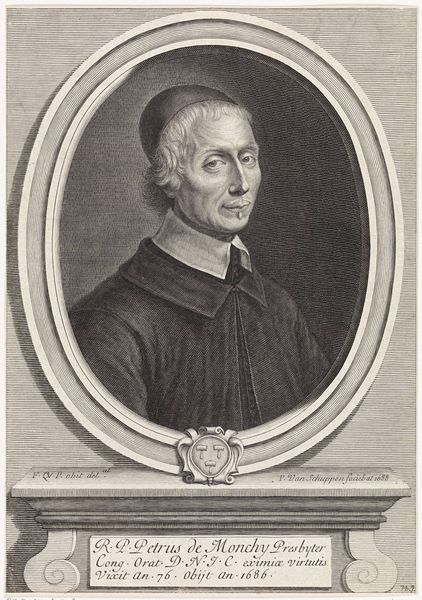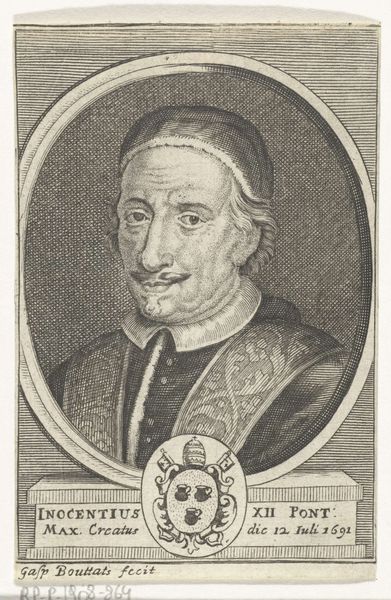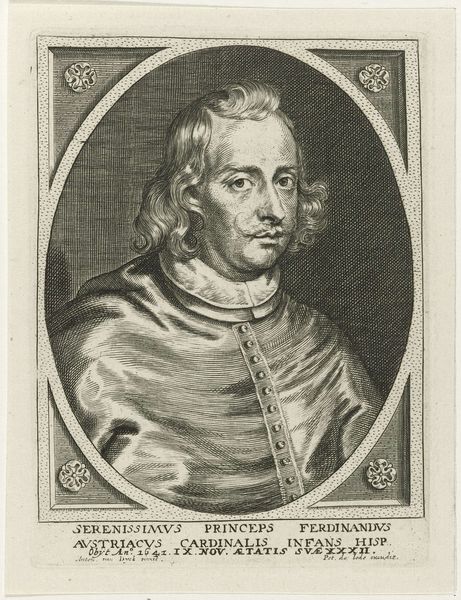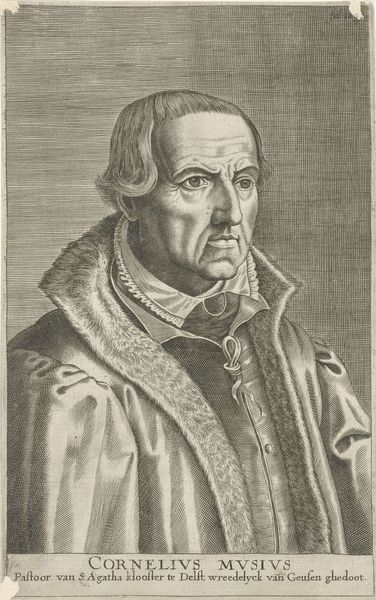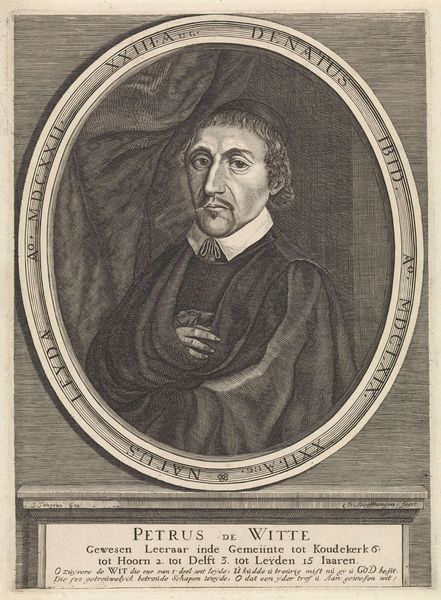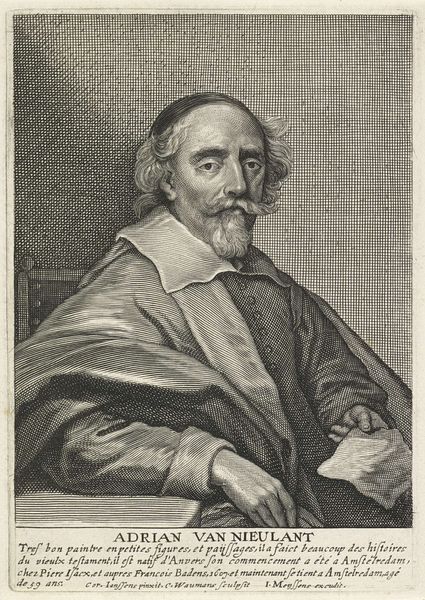
print, engraving
#
portrait
#
baroque
# print
#
old engraving style
#
portrait reference
#
framed image
#
portrait drawing
#
engraving
#
portrait art
Dimensions: height 141 mm, width 85 mm
Copyright: Rijks Museum: Open Domain
Jacobus Harrewijn etched this portrait of Petrus Lambertus, a bishop, sometime between 1660 and 1732. The most potent symbol here is the cross, prominently displayed on Lambertus’ chest. This emblem, central to Christian faith, signifies sacrifice, redemption, and spiritual devotion. The cross is a universal symbol that echoes through time. We see echoes of this symbol in ancient Egyptian Ankhs, emblems of life, or even in simple intersecting lines found in prehistoric art. Over millennia, its meaning has been layered with cultural and religious significance, most notably evolving into the Christian cross we recognize today. Psychologically, the cross taps into deep-seated human emotions—suffering, hope, and faith. Its enduring presence across cultures and eras suggests a collective human preoccupation with mortality and transcendence. The solemn presentation of Lambertus, adorned with this powerful symbol, engages us on a subconscious level, prompting reflection on our own beliefs and existential concerns. The symbol's cyclical journey reflects humanity’s continuous search for meaning.
Comments
No comments
Be the first to comment and join the conversation on the ultimate creative platform.
